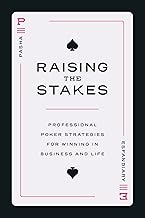Mastering Strategy Games: Tips, Tactics & Brain-Boosting Tricks Guide
Are you ready to elevate your game, outsmart your opponents, and truly dominate the strategic battlefield? Whether you’re marshalling armies in a real-time strategy (RTS) epic, planning turns in a grand strategy simulation, or carefully placing units in a tactical RPG, mastering strategy games offers immense rewards.
Beyond the sheer fun, these games are powerful tools for sharpening your mind. This comprehensive guide will equip you with the essential tips, advanced tactics, and brain-boosting tricks you need to not just play, but truly master any strategy game, enhancing your cognitive skills along the way.
Why Play Strategy Games? The Brain-Boosting Benefits
Strategy games aren’t just entertainment; they’re mental workouts. Engaging with them regularly can significantly boost several key cognitive functions:
Cognitive Enhancement
- Improved Memory: Remembering build orders, unit counters, and map layouts.
- Enhanced Focus & Concentration: Maintaining attention during complex, multi-layered scenarios.
- Faster Information Processing: Quickly analyzing data and making split-second decisions.
Problem-Solving Skills
Every match is a unique puzzle. You’re constantly faced with challenges that require creative and logical solutions.
- Critical Thinking: Evaluating situations, identifying core issues, and formulating effective responses.
- Strategic Planning: Developing long-term goals and outlining the steps to achieve them.
Patience and Persistence
Success in strategy games rarely comes instantly. They teach you the value of perseverance and learning from setbacks.
Adaptability
Opponents are unpredictable. Maps vary. Strategy games force you to think on your feet and adjust your plans dynamically.
Fundamental Principles of Strategy: Applicable to All Games
Before diving into specific tactics, let’s establish the universal laws that govern success in any strategy game.
Understanding the Game Mechanics
This is your foundation. You must know the rules, even if you plan to break them.
- Victory Conditions: How do you win? (Conquest, economic, cultural, score, etc.)
- Resource System: What resources are there, how are they gathered, and what are their limits?
- Unit/Faction Strengths & Weaknesses: Know what each piece on the board can do.
- Tech Tree/Upgrades: Understand progression paths and key power spikes.
The Importance of Information (Scouting/Recon)
Knowledge is power. Don’t operate in the dark.
- Opponent’s Plan: What are they building? Where are they expanding?
- Map Awareness: Identify key objectives, choke points, and resource locations.
- Threat Assessment: What dangers are imminent? What opportunities exist?
Resource Management
Efficiency in managing your economy is often the difference between victory and defeat.
- Balance Production: Don’t over-invest in one area at the expense of another.
- Economic Growth: Prioritize expanding your resource base early.
- Strategic Spending: Allocate resources where they will have the most impact.
Risk Assessment vs. Reward
Every decision carries risk. Learn to weigh the potential gains against the potential losses.
- Aggression vs. Defense: When is it wise to attack, and when to fortify?
- Expansion vs. Consolidation: Should you push for more territory or solidify your current holdings?
Adaptability and Flexibility
No plan survives contact with the enemy. Be ready to pivot.
- Contingency Planning: Have backup strategies for when things go wrong.
- Recognize Changes: Identify shifts in the game state and adjust accordingly.
Pre-Game Preparation: Laying the Foundation for Victory
Success often starts before the first move is made.
Know Your Faction/Race/Character
Spend time in practice modes or tutorials. Understand your chosen entity’s unique abilities, synergies, and limitations.
Study the Map
Before a match, if possible, analyze the map. Identify:
- Starting locations
- Key resource nodes
- Defensible positions
- Paths for attack/expansion
Develop an Opening Strategy (Build Order/Early Game Plan)
Having a solid opening allows you to start efficiently and react better to early threats. Practice a few standard openings.
In-Game Tactics: Mastering the Battlefield
Now, let’s get into the nitty-gritty of outplaying your opponents.
Macro vs. Micro
This duality is crucial, especially in RTS games.
- Macro (Macro-management): Your overall economy, base building, production queues, and long-term strategic goals. Prioritize this.
- Micro (Micro-management): The precise control of individual units in combat or for specific tasks. Use it to gain advantages in skirmishes.
Positional Play and Unit Composition
- Terrain Advantage: Use high ground, choke points, or cover to your benefit.
- Unit Counters: Always build units that are strong against your opponent’s army composition.
- Flanking & Encirclement: Attack from multiple angles to overwhelm defenses.
The Art of Deception (Feints, Bluffs)
Psychological warfare can be just as effective as military might.
- Fake Attacks: Draw enemy forces away from your true objective.
- Hidden Expansions: Secure resources without your opponent noticing.
- Bluffing Tech: Make your opponent think you’re going for a certain strategy.
Exploiting Weaknesses
Once you’ve scouted, use that information.
- Weak Economy: Harass resource gatherers.
- Vulnerable Base: Target undefended structures or critical production buildings.
- Poor Unit Composition: Counter with units specifically designed to defeat theirs.
Decision-Making Under Pressure
Stay calm! Panicking leads to mistakes. Take a deep breath, quickly assess the situation, and make the best decision you can with the information available.
Post-Game Analysis: Learning from Every Match
The learning doesn’t stop when the game ends. This is where true mastery begins.
Review Replays
Many strategy games offer replay features. Watch them from your perspective and your opponent’s.
Identify Mistakes and Missed Opportunities
- When did you fall behind?
- What critical error did you make?
- What could you have done differently?
Analyze Opponent’s Strategy
What did they do well? What did you learn from their approach?
Implement Lessons Learned
Don’t just identify mistakes, actively work on correcting them in your next games.
Advanced Brain-Boosting Tricks for Strategic Mastery
Beyond game-specific tactics, these meta-skills will sharpen your strategic mind.
Pattern Recognition
Over time, you’ll start to recognize common opponent strategies, build orders, and reactions. This allows for faster counter-play.
Predictive Thinking (Anticipating Opponent’s Moves)
Based on their actions, resources, and typical player behavior, try to forecast your opponent’s next several moves. Plan your responses in advance.
Backward Planning
Start with your desired victory condition and work backward. What steps are necessary to achieve that goal? This helps structure your long-term strategy.
Deliberate Practice
Instead of just playing, practice with a specific goal in mind: “Today, I will focus on improving my early game scouting,” or “I will master this specific unit micro.”
Stay Calm Under Pressure
Practice mindfulness or quick breathing exercises. A clear head makes better decisions. Remind yourself it’s a game, and learning is the primary goal.
Conclusion: Your Journey to Strategic Excellence
Mastering strategy games is a journey, not a destination. It requires dedication, continuous learning, and the willingness to adapt. By applying the tips, tactics, and brain-boosting tricks outlined in this guide, you’ll not only see significant improvements in your gameplay but also sharpen your cognitive abilities in ways that benefit real-world decision-making.
So, choose your game, prepare your mind, and embark on your path to strategic excellence. The battlefield awaits!
Related Amazon Products

Raising the Stakes: Professional Poker Strategies for Winning in Business and Life

The Power Of Networking: Strategies for Career Excellence, Job Development, and Building Greater Triumphs in Your Work
As an Amazon Associate I earn from qualifying purchases.








